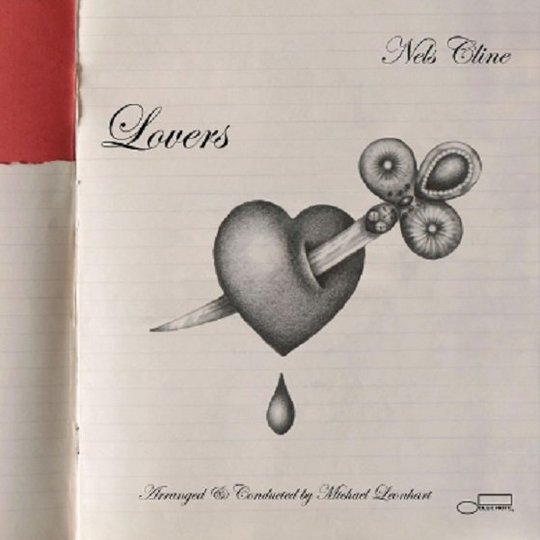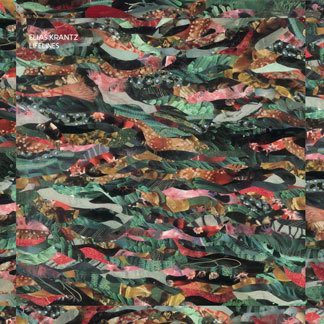I’m going to let you in on a secret: pretty much every music critic on that internet they have now has an idea – accurate or not, it doesn’t matter – of what their typical reader looks like. For example, you are reading Drowned in Sound so I imagine you are aged 22-40, live in north London (probably Stoke Newington) and are better looking and more stylishly (though probably not better) dressed than me. And, whether you admit to it or not and are a fan or not, you’ve probably listened to Wilco.
This means two things. Firstly, although you don’t know his name, you have heard the guitar work of Nels Cline before. And secondly, Lovers does not sound as you expected.
It is no exaggeration to call Cline one of the greatest guitarists since Hendrix. The 60-year-old jazz veteran has reportedly played on more than 150 albums over the past 36 years. Even if you only know his work with Wilco, whom he joined as lead guitarist for the live tour following A Ghost is Born in 2004, you’ll know his multifaceted genius. There are the cute, treated augmentations on ‘The Whole Love’, the hand-blurring shredding on ‘Dawned on Me’, the beautiful slide guitar on ‘Poor Places’ from the live album Kicking Television, the light-fingered yet blistering solo on ‘Impossible Germany’ and the brilliant work that provides a throughline on ‘Art of Almost’. And that barely scratches the surface.
When he steps away from alt-country-rock (or whatever you want to call Jeff Tweedy et al) Cline tends to veer towards a more experimental jazz sound and this is where Lovers really surprises. For the first half at least, this is a warm and very, very straight playing of the American songbook. Sure, Cline’s fretwork is as dextrous as you would expect but he eases us into the double album with nary a signature freakout in sight. All in all, it’s ... actually quite lovely and soothing. The likes of ‘Beautiful Lovers’ – made famous by Billie Holliday – are run through a Miles Davis-esque filter and then through that of perhaps the world’s most accomplished guitarist. Cline wasn’t bullshitting when he named this album: through his interpretation (and that of his jazz orchestra) these are unquestionably love songs.
Is such a straightforward approach sustainable over an 89-minute, 18-track double album? Well we don’t get to find out here as things start to take a turn for the weird on the eight-minute 'Lady Gabor', a piece I’m reliably informed was written by fusion guitarist Gábor Szabó (nope, sorry). Here the orchestration becomes strained and eerie – it’s a shift that won’t jolt you out of your mood but is nonetheless interestingly unsettling. It’s in the album’s second half that Cline’s fondness for the weird really takes over, exemplified in a Charlotte Rampling film score mashup taken from The Night Porter (Nazi concentration camp abuse flashback themed erotic thriller) and Max mon Amour (Rampling takes a chimpanzee as her lover). Even if the second half of the medley left me wondering what a Cline interpretation of the Planet of the Apes music from The Simpsons would sound like, the choice of scores leaves no doubt that he is in no mood for letting the listener coast through the album.
-
8Dan Lucas's Score























